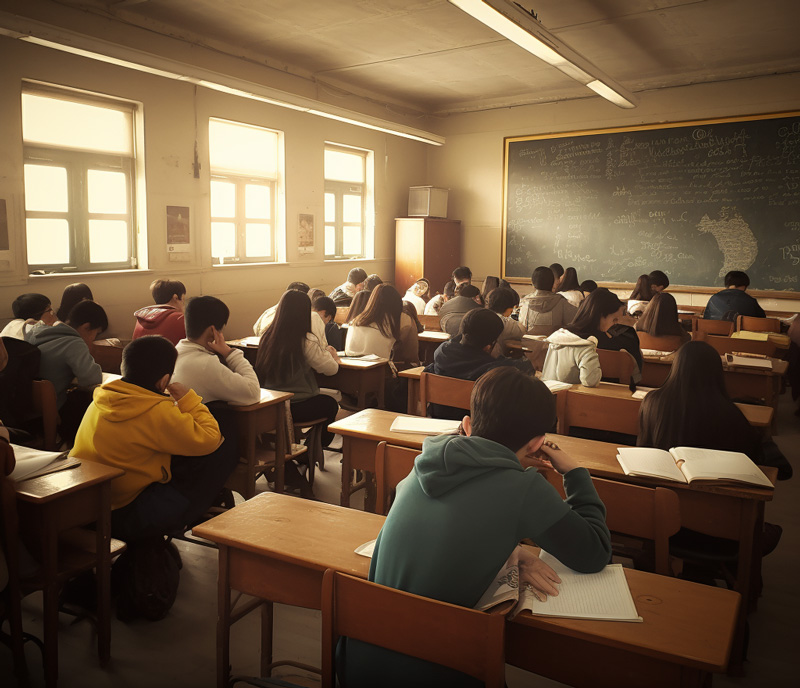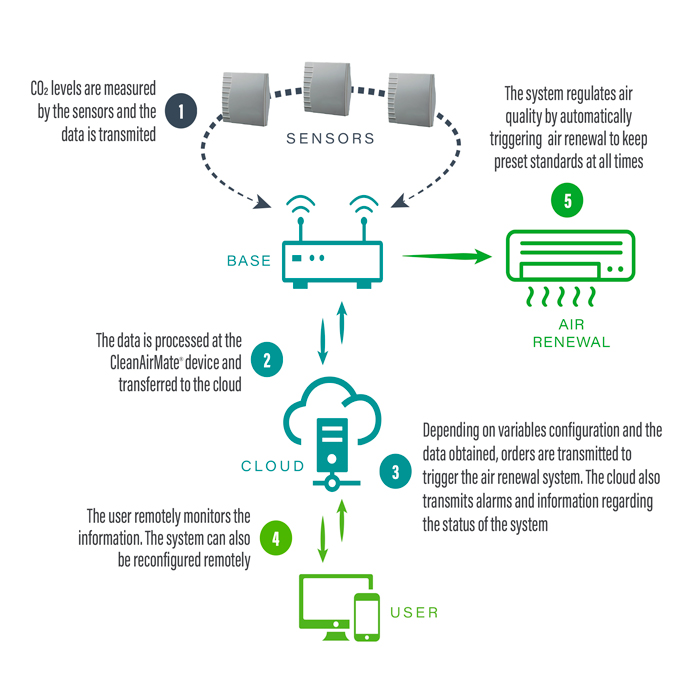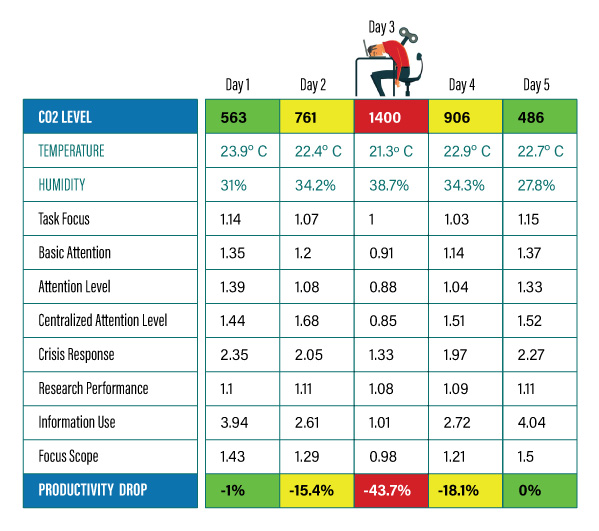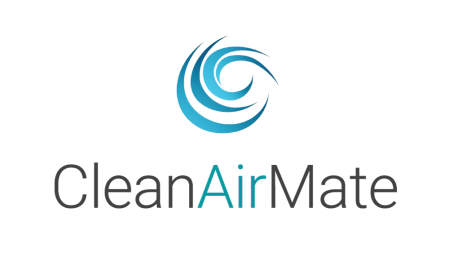
Health is in the air
CleanAirMate is a measuring system to adjust indoors level of CO2 by automating air renewal.
In offices, waiting rooms, classrooms, auditoriums and any indoor environments where groups of people gather, air quality degrades increasing the concentration of CO2.
Stale air not only increases the spread of viral diseases but also affects people's intellectual performance.
CleanAirMate measures CO2 concentration through a wireless sensor system and triggers air renewal every time its level reaches the maximum preset.

Benefits
Health, productivity, and energy savings..
- Health: Air renewal reduces the spread of viral diseases.
- Absenteeism: It decreases thanks to the prevention of infections through air renewal.
- Productivity: It is proven that stale air affects intellectual and physical performance.
- Energy savings: Uncontrolled ventilation or air renewal has high air conditioning costs; CleanAirMate's sensor system optimizes the process by renewing the air at the necessary time and amount.
- Profitability: The implementation of the system has very low cost.
- Implementation: It does not require wet masonry work, it is installed in a few hours without the need to interrupt operations.

How it works
Wireless, automatic and in the cloud.
- CO2 sensors are installed in strategic locations. These devices transmit measurements via Wi-Fi in real time at configurable intervals. If the facilities do not have central air conditioning, air extractors are installed on the walls facing the outside.
- The information transmitted by the sensors is recorded in the cloud and processed through proprietary software.
- The system is configured via PC or cell phone app.
- Once the variables are defined, it works automatically and can be controlled remotely.
- When CO2 levels reach the maximum, the system activates air renewal devices, and turns them off when they return to normal values.


Fundamentals
Scientific studies and the experience of Covid19 prove that air renewal prevents infections and improves people's productivity.
- The table on the left summarizes the results of the study on the impact of the level of CO2 in the environment carried out in 2016 by the Exposure, Epidemiology, and Risk Program, Department of Environmental Health, Harvard T.H. Chan School of Public Health, Boston, Massachusetts, USA.
- During Covid19 pandemic, the World Health Organization warned that the risks of contagion were critical in closed environments and recommended, among other things, ventilating indoor spaces and renewing the air.
